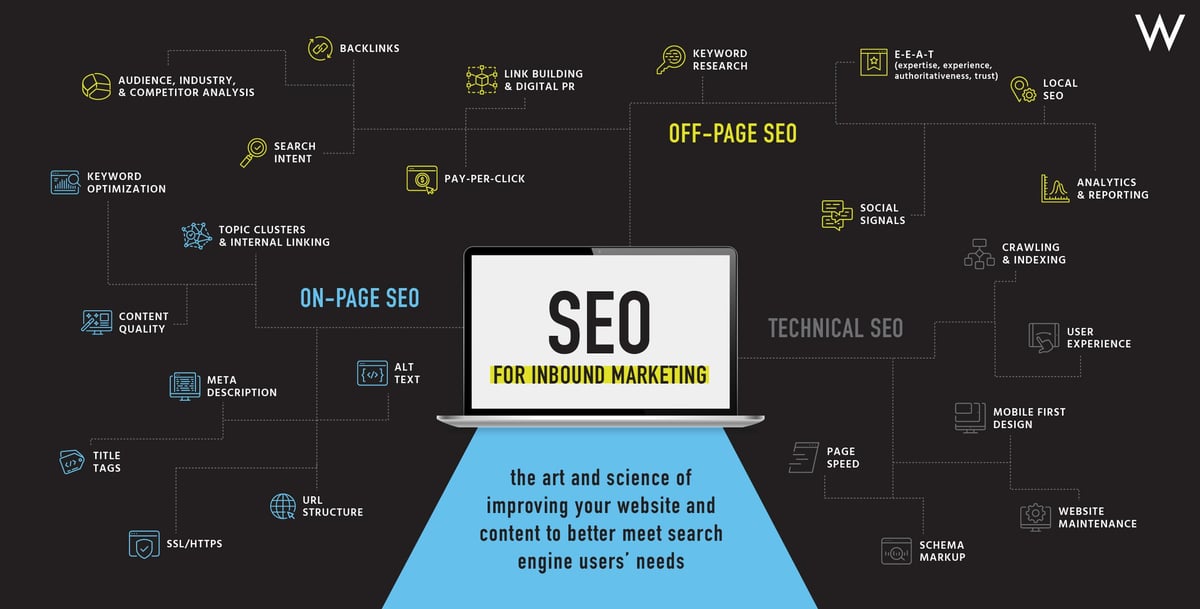
Table of Contents
Introduction to Page Speed and SEO
Have you ever waited for a webpage to load and found yourself getting impatient? That's where the concept of page speed comes in. Page speed refers to how fast a webpage loads its content, like images and text. But why is this important, you may ask? Well, let's dive into how page speed can impact your experience while browsing the internet and why it matters for something called SEO.
Don't write alone! Get your new assistant!
Transform your writing experience with our advanced AI. Keep creativity at your fingertips!
What is Page Speed?
Page speed is like the speedometer of the internet. It tells us how quickly a webpage shows up on your screen when you click on a link. The faster the page speed, the quicker you can see all the cool stuff on a website. It's like a race to see which webpage can show itself to you the fastest!
Why Does Page Speed Matter for SEO?
Now, you might be wondering, why does it matter if a webpage loads quickly? Well, here's the deal: search engines, like Google, love speedy pages. When you search for something on Google, it wants to show you the best and fastest websites related to your search. So, if a webpage loads slowly, Google might not think it's the best one to show users like you. That's where SEO benefits come into play. SEO, or search engine optimization, is all about making your website better so search engines like Google can find it easily and show it to people searching for what you offer.
How Does Page Speed Affect Your Site's Performance?
When you click on a website link, do you like waiting for a long time for the page to load? Probably not! Slow load times can be frustrating for visitors, causing them to leave a site before it even fully loads. This means that if your website takes too long to load, you might be losing potential visitors and customers.
Search Optimization and Load Time
Search engines like Google take into account the speed at which a website loads when determining its ranking in search results. This means that if your website loads slowly, it may not show up as high in search results compared to faster-loading websites. So, having a fast-loading website not only improves user experience but also helps with search engine optimization (SEO).
A slow website is like a roadblock to your online success. Learn how page speeds impact SEO and unlock your full potential: https://texta.ai/blog/seo/page-speeds-seo-impact-explained #SEO #PageSpeed #DigitalMarketingTweet Quote
Speed Testing: How to Check Your Page Speed
Checking the speed of your webpage is crucial to ensure a seamless user experience and boost your SEO rankings. By conducting regular speed tests, you can identify areas for improvement and optimize your site for better performance. Let's explore how you can easily check your page speed using various tools.

Image courtesy of via Google Images
Choosing the Right Speed Testing Tools
There are several tools available online that can help you assess the speed of your webpage. Some popular options include Google PageSpeed Insights, GTmetrix, Pingdom, and WebPageTest. These tools provide detailed insights into your page's performance metrics, such as load time, page size, and server response time.
Before selecting a tool, consider your specific needs and the level of detail you require. Some tools offer more comprehensive reports with actionable recommendations, while others provide a quick overview of your page speed performance.
Understanding Your Speed Test Results
Once you have conducted a speed test, it's essential to interpret the results accurately. Look out for key metrics like:
- Load Time: The time it takes for your webpage to fully load. - Page Size: The overall size of your webpage, including images, scripts, and other media files. - Server Response Time: The time it takes for your server to respond to requests from users.
By understanding these metrics, you can pinpoint areas that may be slowing down your webpage and implement solutions to improve its speed.
Improving Page Speed: Tips and Tricks
If you want your website to load faster, there are some quick and easy changes you can make. One of the most common reasons for slow loading times is large image files. By optimizing your images, you can significantly reduce the time it takes for your website to load. Make sure your images are the right size and format for the web, and consider using tools like Photoshop or online image compressors to shrink their file size without losing quality.
READ MORE:

Boost Your Brand: SEO for Small Business
AI Blog Writer.
Automate your blog for WordPress,
Shopify, Webflow, Wix.
Easily integrate with just one click. Skyrocket your traffic by generating high-quality articles and publishing them automatically directly to your blog.
Another quick fix is to enable browser caching. This means that when a visitor comes to your website, their browser will store certain elements of your site so that the next time they visit, those elements don't have to be reloaded. This can help speed up load times for returning visitors.
Furthermore, minimizing the use of plugins and scripts on your site can also improve load times. Every additional plugin or script you have running on your website adds to the amount of data that needs to be loaded, slowing down the overall speed.
Longer-Term Strategies for Speed Optimization
If you're looking for more significant improvements to your website's load times, there are some longer-term strategies you can implement. One key area to focus on is upgrading your hosting. A good hosting provider can make a big difference in how quickly your website loads. Consider moving to a dedicated server or a faster hosting plan to see noticeable improvements.
Additionally, optimizing your code can help speed up your site. This involves cleaning up your HTML, CSS, and JavaScript code to remove any unnecessary or redundant lines. A cleaner codebase can improve loading times and overall site performance.
Lastly, consider implementing lazy loading for images and videos. This technique only loads media elements when they come into view, rather than all at once. This can help reduce initial load times and improve the overall performance of your website.
The Direct Impact of Page Speed on SEO Ranking
In the world of online search, where websites compete for attention, speed matters. But why does page speed hold so much weight when it comes to SEO ranking? Let's delve into how Google views this crucial factor and the benefits it brings to your website.

Image courtesy of via Google Images
Page Speed as a Google Ranking Factor
Google, the most popular search engine by far, factors in page speed when determining the ranking of websites. This means that the quicker your webpage loads, the higher it may appear in search results. Google's algorithm considers user experience a top priority, and faster-loading pages contribute to a better overall browsing experience.
SEO Benefits of Fast Load Times
Having a fast-loading website doesn't just improve user experience; it also boosts your SEO performance. When your page loads quickly, visitors are more likely to stay on your site, reducing bounce rates. This indicates to search engines that your content is relevant and engaging, which can positively impact your search rankings.
The Relationship Between Page Speed and SEO Success
Improving the speed at which a webpage loads can have a significant impact on its search engine optimization (SEO) success. By understanding how page speed affects SEO, website owners can take strategic steps to enhance their online visibility and user experience.
Page Speed as a Google Ranking Factor
Google, the leading search engine, includes page speed as one of its ranking factors. This means that websites that load quickly are more likely to rank higher in search results compared to slower-loading websites. Google prioritizes user experience, and fast load times contribute to a positive experience for site visitors.
SEO Benefits of Fast Load Times
Having a fast-loading website offers various SEO benefits. Faster pages are more likely to be indexed by search engines quickly, which can lead to higher visibility in search results. Additionally, users tend to spend more time on websites that load quickly, reducing bounce rates and increasing the likelihood of conversions.
Overall, the relationship between page speed and SEO success is clear: faster loading times can positively impact a website's search engine rankings, user experience, and overall online performance. By prioritizing page speed optimization, website owners can enhance their SEO efforts and achieve better results in the competitive online landscape.
Don't write alone! Get your new assistant!
Transform your writing experience with our advanced AI. Keep creativity at your fingertips!
FAQs
Why is my website slow?
There are several reasons why a website might be slow. It could be due to large image files that take a long time to load, too many plugins or scripts running in the background, or even a slow server. To address these issues, you can optimize your images, reduce the number of plugins, and consider upgrading your hosting provider.
How does page speed affect my site's traffic?
Page speed plays a crucial role in determining the success of your website. If your site loads slowly, visitors are more likely to leave before the page fully loads, leading to high bounce rates and decreased traffic. Additionally, search engines like Google prioritize fast-loading sites in their rankings, so slow speed can negatively impact your visibility in search results.
Can page speed improvements guarantee better SEO rankings?
While improving your page speed is essential for better SEO performance, it is not the only factor that influences your rankings. Factors like quality content, relevant keywords, and backlinks also play a significant role in determining your SEO success. However, optimizing your page speed can certainly contribute to better rankings as it improves user experience and aligns with Google's ranking factors.

AI SEO Rocket.
Dominate Google Rankings with AI SEO Tools.
Easily integrate with just one click. Skyrocket your traffic by generating high-quality
articles and publishing them automatically directly to your blog.
Read more from the blog

Boost Your SEO: 5 Essential Steps
Uncover the secret to skyrocketing your website's ranking with these 5 game-changing SEO steps that you can't afford to miss.

Unveiling Organic SEO: A Starter Guide
Discover the secrets behind organic SEO and learn how to boost your website's ranking with this comprehensive starter guide.


